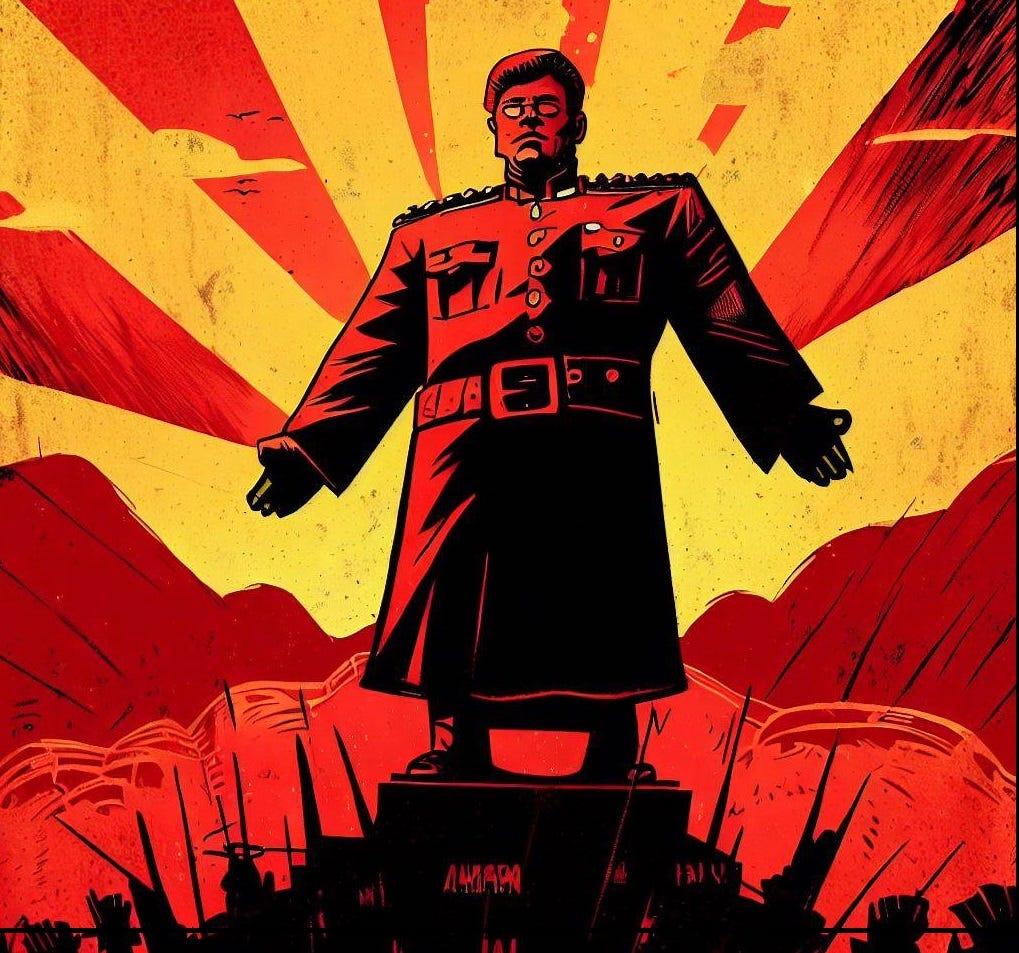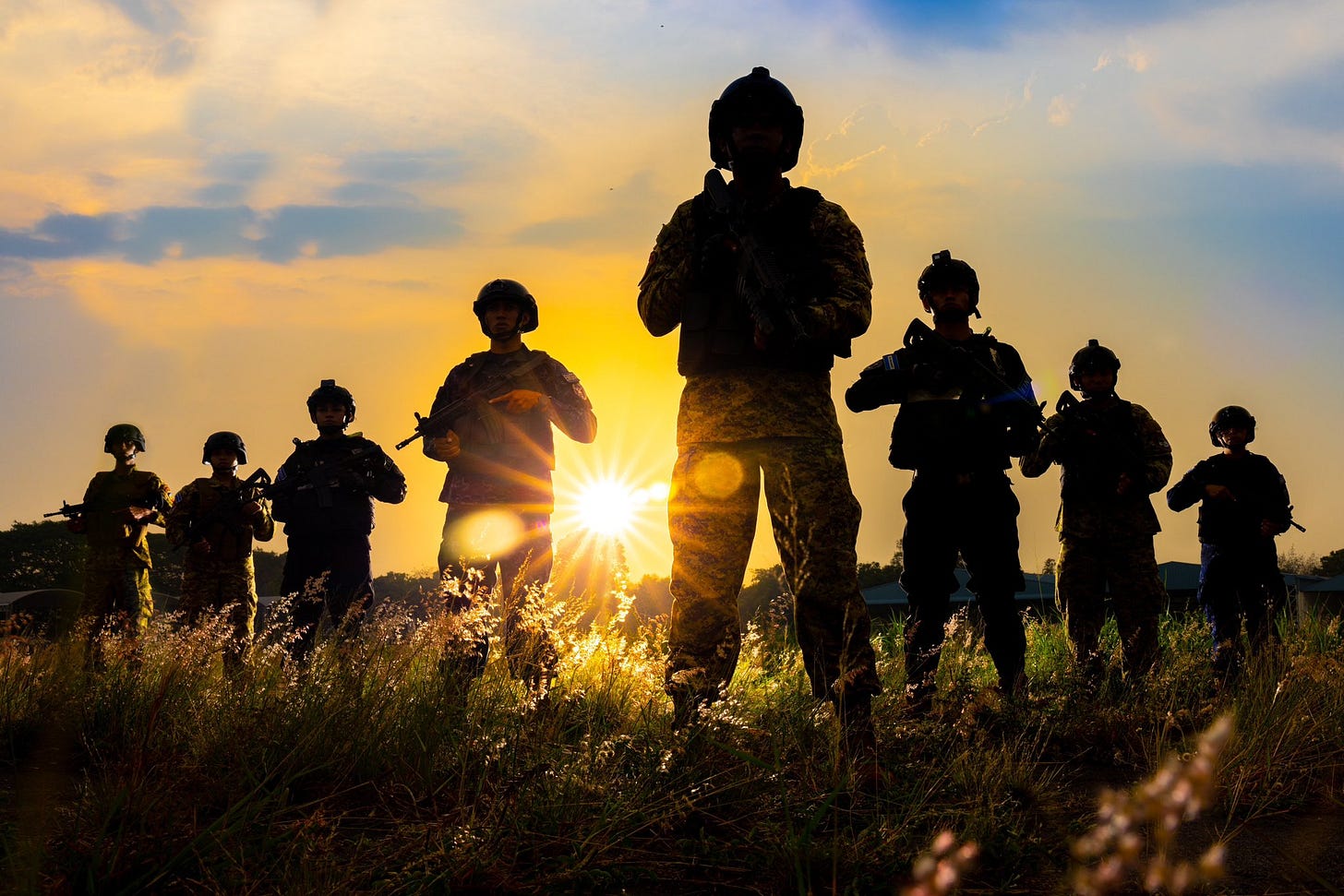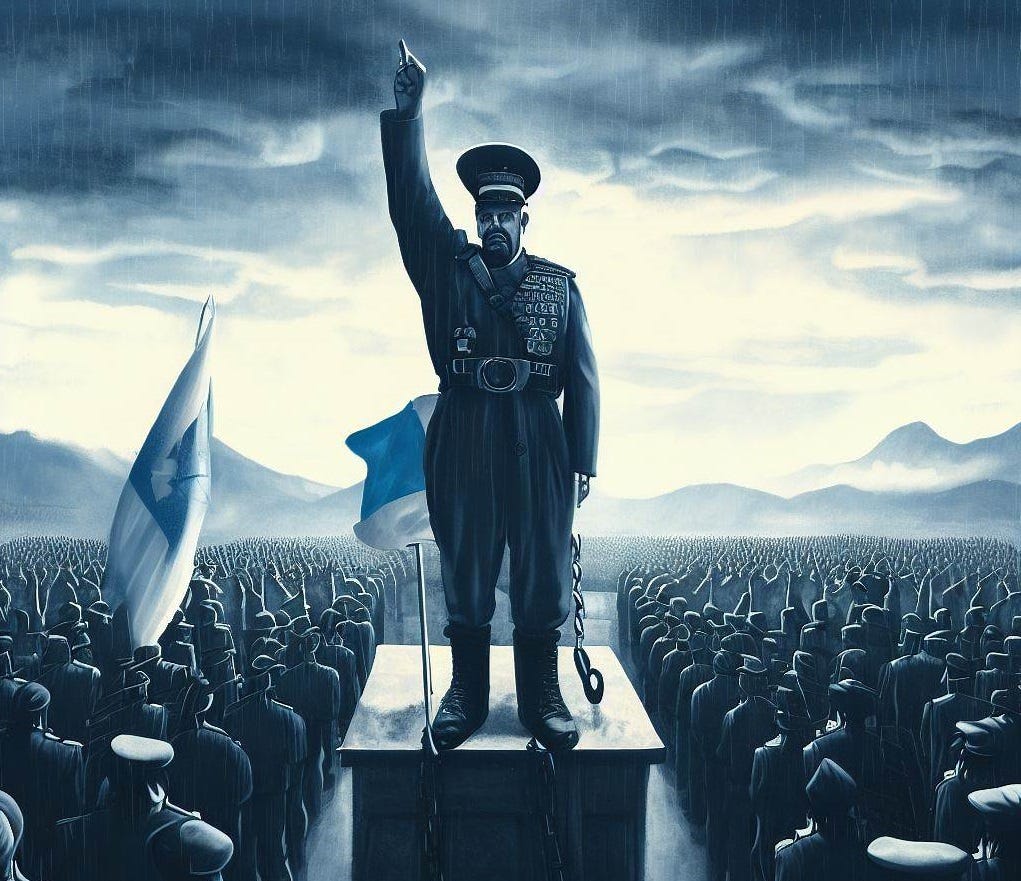Elections Under Attack, Authoritarianism on the Rise in Central America
A dangerous trend away from democracy across the region sparks international concern
Autocracy and authoritarianism are on the rise throughout Central America, a region that lies along the main narcotics and migration routes in the Western Hemisphere, and a region that has long been plagued by violence caused by both the drug trade and the U.S.-led “War on Drugs”.
Reeling from rampant crime as well as endemic political corruption, the region this year has taken a dramatic turn away from democracy as a series of populist leaders (as well as one indisputable dictatorship) have chosen short-term, and at times draconian, policies to remain in power or win elections.
This week at PWS we spotlight a few of the biggest examples and explain the why’s and how’s of a troubling trend that, at least for now, is only likely to worsen.
Guatemala
Guatemalan politics have been long known for rampant corruption, but that corruption has been thrust into international headlines in recent weeks as the country’s Conservative establishment parties have employed myriad legal tactics meant to undermine presidential elections.
After the government banned several candidates before the first-round on June 25, the vote was widely considered a referendum between a handful of right-wing establishment politicians.
But Bernardo Arévalo, a social democratic candidate who has run on an anti-corruption platform, surprised analysts and pollsters when he emerged as a dark horse front-runner and qualified for the Aug. 20 run-off against right-wing Sandra Torres.
The election results, though ratified by the Organization of American States, were challenged by the judicial branch. When the courts discovered no serious irregularities and upheld the election results, another Guatemalan court issued an order banning Semilla, the party of Arévalo, from participating in elections.
The election results were upheld, and the country’s top court overturned the ban on Arévalo, but he remains under investigation by the Attorney General on corruption charges which, in a highly questionable timing move, were unveiled the day after elections results.
Officials across the region, as well as human rights groups, have condemned the moves as an “attack on democracy” and attempts by Guatemala’s elite ruling class to overturn election results via allies in the judicial branch.
El Salvador
More than a year ago, President Nayib Bukele suspended Constitutional rights in El Salvador as part of a war on gangs such as MS-18 which have long held power in the region (and with whom he had power-sharing deals in the past).
Though described as “temporary”, the measures which led to mass arrests without due process of suspects have been renewed four times since their implementation.
El Salvador in less than a year arrested nearly 1% of the population, overtaking the United States as the country with the highest per-capita prison rate in the world.
Bukele has also dismantled aspects of El Salvador’s judicial system, publicly attacked journalists and human rights groups, and sent troops to Congress in moves to consolidate his power.
As crime fell amidst the draconian police crackdown, the Bitcoin-slinging, self-styled “coolest dictator in the world” also launched a well-coordinated and aggressive propaganda campaign.
His popularity among voters is inspiring copycat policies across the region, and last week he announced that he will run for re-election, despite it being prohibited by the Constitution.
Honduras

President Xiomara Castro, a progressive at least in name, won elections last year in Honduras. In a landslide victory the wife of former President Manuel Zelaya, who was ousted in a military coup supported by the United States, promised social programs and an anti-corruption agenda.
Instead, she has initiated copycat policies of those implemented in neighboring El Salvador and empowered international mining conglomerates as well as the military while her campaign promises have gone unfilled.
Parts of the country were placed under “temporary emergency measures” last year— measures which include curfews, military deployment, and mass arrests— and Castro doubled down on those policies after a jail riot left more than 40 women dead last month.
Nicaragua
El Salvador becomes more autocratic by the day, but Nicaragua is a full-on dictatorship and has been for years. This is unlikely to change at any point in the near future, so we can’t classify this as a new trend. But, it is part of a troubling wave of authoritarianism across the region.
Costa Rica
With migrants fleeing to Costa Rica in large numbers from Nicaragua to the north, as well as transiting the country en route from Panama in the south, where numbers in Darien Gap are on the rise, the country recently tightened its visa and migration laws.
Although still relatively calm and democratic compared to other countries in the region, Costa Rica has also experienced a rise in crime this year unrelated to migration, prompting President Rodrigo Chaves to promise more police on the streets and tougher policies on crime.
The Fallout
Citizens across the region are being stripped of their basic civil rights as well as their voice in government. In addition to innocents arrested, and deaths in new mega-prisons in El Salvador, these attacks on democracy also weaken the safeguards that expose injustice.
Natalie Southwick, CPJ’s Latin America director, described the worsening situation as part of a larger pattern in all of the Americas.
“We are seeing a global trend towards authoritarianism,” she said. “We’re seeing more attacks, both in rhetoric and physically against journalists throughout the region. Social media amplifies anti-media messages coming directly from the highest levels of government and encourages people to commit violence against reporters.”
These attacks also extend to human rights groups who expose the overreach and misdeeds of those with power, which have increasingly come under attack across the region.
Throughout all of human history, people have at times been willing to support strongmen out of fear or a sense of insecurity (a fear which is often manufactured specifically for that purpose). But the problem with giving power to autocrats is that they are often loathe to give that power back.
Central America may regret this drift towards autocracy when the bill finally comes due, but there is still time to correct course.
Entrenched power rarely stays on the side of the citizens for long, as Latin American history has shown time and time again.
Ship Business
This week’s feature replaces our usual round-up of the big headlines in the Americas. But as always, we humbly ask that you support PWS efforts to create a space for truly independent journalism. We have subscriptions that start at just $5/month.
It’s cheaper than Twitter Blue, much more useful and way more fun! ARRR!
Spanish Word of the Week
Caudillismo - a philosophy of supporting “strongmen”, authoritarian governments, or “tough hand” government policies
Caudillo doesn’t directly translate into English, but perhaps the closest approximation is “warlord”. When used in the context of politics, however, it refers to a strongman style of governance— one that often espouses tough-on-crime policies or combatting an external enemy.
Bukele, Maduro, Uribe, and Ortega are all examples of contemporary caudillos in Latin America.
Those who espouse caudillismo often believe a mythical savior strongman is needed to rescue them from their problems. It is a dynamic that stretches at times across the globe and is far from exclusive to LATAM.
It is tempting to believe that a “benevolent dictator” can fight for society and solve our problems.
It is also a lie— and often a very, very dangerous one.





Hell yeah to the last few sentences. And thank you for assembling it all so clearly, even though it is a sad and alarming read. :/